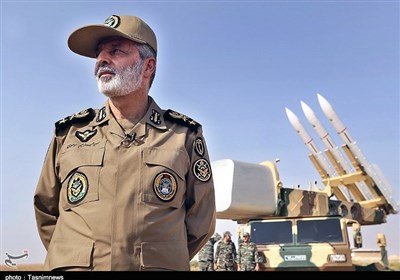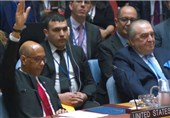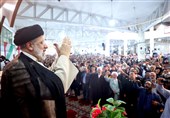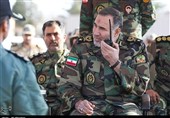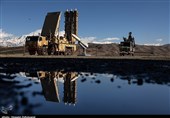Al Khalifa Seeking to Equate Anti-Regime Rallies with Iran: US Expert
TEHRAN (Tasnim) – A New York-based political analyst denounced the human rights situation in Bahrain as “dire”, saying the Al Khalifa regime is seeking to rally support for the ongoing crackdown on its people through equating anti-regime protests by Shiites with Iran.
“The Manama regime’s tactic is to equate Shiite with Iran, which will allow it to rally the US, the other Persian Gulf States, the Saudis and Israel,” Ian Williams, an expert at Foreign Policy in Focus (FPIF), said in an interview with the Tasnim News Agency.
“The human rights situation is dire - but invisible outside. Once again, the opposition has to be imaginative in how it confronts the government, trying to get allies in all sectors of Bahraini society, and outside as well,” he noted.
Ian Williams is a prominent analyst whose work has appeared in newspapers and magazines around the world such as the Australian, The Independent, New York Observer, The Financial Times and The Guardian.
The full text of the interview is as follows:
Tasnim: On Monday, February 27, the Bahraini regime once again adjourned the trial of Sheikh Isa Qassim, the spiritual leader of the Shiite majority in the Persian Gulf country, until March 14. As you know, the Al Khalifa regime had revoked the citizenship of the prominent cleric in June 2016. The regime later said it would put him on trial on trumped-up charges. Sheikh Qassim’s planned trials have been adjourned several times after the top cleric did not appear in court. In the meantime, a sit-in that supporters of Sheikh Qassim have staged in front of his house in Diraz to protect him against the regime forces has remained in place for months. Recently, Bahrain’s appeals court also upheld a nine-year prison term imposed on Sheikh Ali Salman, the secretary general of main opposition party in the Arab country, al-Wefaq National Islamic Society, despite widespread criticism both at home and abroad against his imprisonment. It seems that the Al Khalifa regime is not going to modify its approach to the opposition figures. What is your assessment of the developments?
Williams: While sympathizing with the opposition’s frustration, not participating in the elections was probably a mistake since it meant they abandoned a platform from which they could expose the government’s authoritarian moves and from which they could have worked to gather international support for Sheikh Ali Salman and others. The opposition needs to work harder to embarrass the regime outside, not least since it so obviously depends on foreign support.
Tasnim: last week, the Bahraini MPs voted to change the constitution to allow civilians to be tried in military courts. The decision by the 40-seat Council of Representatives, the elected lower house of the country's National Assembly, comes after a royal decree a month ago restored the power of its domestic spy service to make some arrests. What’s your take on that?
Williams: This could have been a consequence of the abstention since I presume the opposition would have been able to defeat the measures which the government can now claim internationally have a measure of legitimacy, since they were passed by the Council, even if their essence is clearly undemocratic and constitutionally wrong.
Tasnim: Earlier this month, the Bahraini people marked the anniversary of the February 14 revolution. The Arab Kingdom has been witnessing peaceful protests against the ruling Al Khalifa regime on a daily basis since February 2011. This is while scores of Bahrainis have been killed and hundreds of others injured and arrested in the ongoing crackdown on the peaceful demonstrations. How do you see the human rights situation in the Persian Gulf country and the future of the revolution?
Williams: The human rights situation is dire - but invisible outside. Once again, the opposition has to be imaginative in how it confronts the government, trying to get allies in all sectors of Bahraini society, and outside as well.
Tasnim: It has been six years since troops from Saudi Arabia were deployed to Bahrain to assist in the Manama regime’s crackdown on the peaceful protesters. In your opinion, what is the reason behind the deployment of the Saudi forces? What geopolitical goals is Riyadh pursuing by the military intervention in the island country?
Williams: Riyadh does not want either democracy or Shiite enfranchisement in a neighboring country. And the Manama regime’s tactic is to equate Shiite with Iran, which will allow it to rally the US, the other Persian Gulf States, the Saudis and Israel. The opposition can try to allay those suspicions, but since they probably reflect more anti-Shiite prejudice, there are limits. But concentrating more on democracy and human rights rather than sectarian issues might help.

